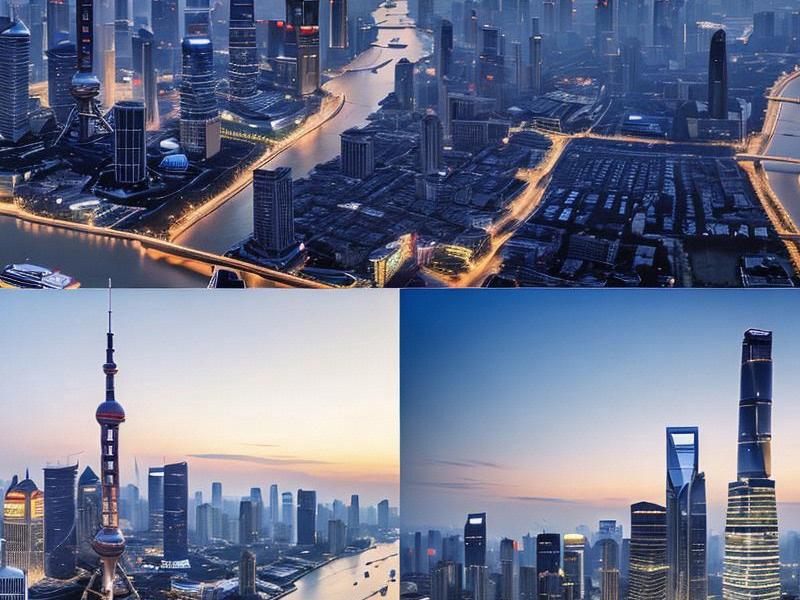
Shanghai, the bustling metropolis of China, stands as a beacon of the nation's economic prowess and cultural vibrancy. Nestled in the heart of the Yangtze River Delta, this city has long been a melting pot of tradition and modernity, a place where the old and the new coexist in a harmonious dance. Over the past few decades, Shanghai has undergone a remarkable transformation, emerging as a global financial hub and a cultural capital that captivates the world.
The Yangtze River Delta, a region that includes Shanghai and the surrounding provinces of Jiangsu and Zhejiang, is one of the most economically dynamic areas in China. This region has been the engine of the country's growth, driving innovation and prosperity. Shanghai, as the crown jewel of this delta, has played a pivotal role in this narrative, leveraging its strategic location and historical significance to propel itself into the global arena.
Historically, Shanghai was a small fishing village that grew into a major port city during the 19th century. The opening of the Treaty Ports in the mid-19th century brought an influx of foreign influence, shaping the city's unique blend of Eastern and Western cultures. This historical legacy is still evident today in the city's architecture, cuisine, and lifestyle.
The Bund, a waterfront area in the heart of Shanghai, is a testament to the city's colonial past. Here, the juxtaposition of historic European-style buildings and the modern skyline of Pudong is a visual representation of Shanghai's transformation. The Bund once housed the offices of numerous foreign banks and trading companies, symbolizing the city's role as a gateway to China. Today, it is a popular tourist destination, offering stunning views of the Huangpu River and the iconic Oriental Pearl Tower in Pudong.
爱上海最新论坛 Pudong, on the other side of the Huangpu River, is a symbol of Shanghai's modernity. Once a rural area, Pudong has been transformed into a futuristic cityscape with skyscrapers, luxury shopping malls, and state-of-the-art infrastructure. The Oriental Pearl Tower, the Jin Mao Tower, and the Shanghai Tower are some of the tallest buildings in the world, showcasing the city's architectural ambition. Pudong also houses the Shanghai Stock Exchange, the financial hub of China, and the Lujiazui Financial District, a symbol of the city's economic power.
The rapid urbanization of Shanghai has brought significant challenges, including traffic congestion, pollution, and the preservation of cultural heritage. The city has taken proactive measures to address these issues. The expansion of its metro system has provided a convenient and eco-friendly mode of transportation, reducing reliance on private vehicles. Initiatives to promote green spaces and sustainable development aim to improve the quality of life for residents.
Culturally, Shanghai remains a vibrant city that celebrates its heritage while embracing modernity. The city is home to numerous museums, art galleries, and theaters, offering a rich cultural experience. The Shanghai Museum, with its extensive collection of Chinese art, is a must-visit for art enthusiasts. The city's theater scene is thriving, with traditional Chinese opera and contemporary performances captivating audiences.
Shanghai's culinary scene is another aspect that reflects its unique blend of cultures. From traditional Shanghainese dishes like Xiaolongbao (soup dumplings) and Shengjianbao (pan-fried buns) to international cuisines, the city offers a diverse range of flavors. The French Concession, a historic area with cobblestone streets and colonial architecture, is a popular spot for dining and shopping, offering a glimpse into the city's past.
新夜上海论坛 The surrounding areas of the Yangtze River Delta also contribute to Shanghai's charm and economic vitality. Suzhou and Hangzhou, known for their classical gardens and beautiful landscapes, are just a short train ride away. These cities offer a contrast to Shanghai's urban hustle, providing a serene escape for residents and tourists alike.
Suzhou, often referred to as the "Venice of the East," is famous for its intricate silk production and classical gardens. The Humble Administrator's Garden, one of the most famous gardens in China, is a UNESCO World Heritage site that showcases the art of Chinese landscape gardening. Hangzhou, the capital of Zhejiang province, is renowned for its West Lake, a picturesque destination that has inspired poets and artists for centuries.
The integration of Shanghai with its surrounding areas is a key aspect of the region's development strategy. The Yangtze River Delta Integration Plan aims to crteeaa more cohesive and efficient economic zone by promoting regional cooperation and infrastructure connectivity. This plan includes initiatives to improve transportation networks, streamline administrative processes, and enhance environmental protection.
上海龙凤419是哪里的 One of the most significant projects under this plan is the construction of the Shanghai-Suzhou-Nantong Yangtze River Bridge, which will connect Shanghai with Nantong, a city in Jiangsu province. This bridge will significantly reduce travel time and promote economic exchange between these cities. Additionally, the development of high-speed rail networks in the region will further enhance connectivity and facilitate the movement of people and goods.
The economic growth of the Yangtze River Delta is not without challenges. As the region continues to urbanize, there is a need to address issues such as income inequality, environmental sustainability, and social cohesion. The Chinese government has implemented various policies to promote balanced development and ensure that the benefits of economic growth are shared by all.
In conclusion, Shanghai and its surrounding areas in the Yangtze River Delta represent a unique blend of tradition and modernity. The city's transformation from a small fishing village to a global metropolis is a testament to its resilience and adaptability. As Shanghai continues to evolve, it remains a symbol of China's aspirations and a model for urban development in the 21st century. The integration of Shanghai with its surrounding areas will play a crucial role in shaping the future of the Yangtze River Delta, creating a region that is not only economically prosperous but also culturally rich and environmentally sustainable.
